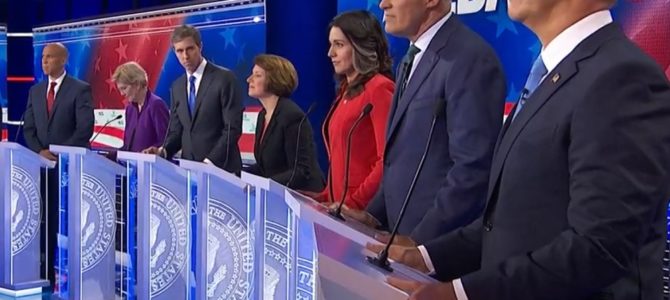During the first Democratic debate of the 2020 election cycle, one of the first talking points for most of the candidates was the state of the economy. More specifically, each of the ten candidates discussed, in vague terms, why and how the economy is failing Americans. However, the population is largely not feeling this alleged failure.
According to a recent Gallup poll, 88 percent of Americans think the economy is in a condition best described as “fair,” “good,” or “excellent.” Likewise, 72 percent of Americans believe that now is a good time to find a quality job, both numbers that are substantially higher than four years ago.
Candidate Elizabeth Warren stated that the economy is only doing great for those with money, and Jay Inslee discussed a need to “put people to work.” They would be right, if falling unemployment and job creation were bad for the country. During Trump’s administration, 5.1 million jobs were created. Likewise, national unemployment is at 3.6 percent, the lowest it has been since 1969.
Tim Ryan argued that we need to raise wages, as tax cuts have led to executives pocketing increasing profits at the expense of their employees. Statements like these ignore that, in the aftermath of the 2017 Tax Cuts and Jobs Act, more than 4 million Americans took home bonuses, in conjunction with the aforementioned job growth and falling unemployment.
If you listened to the Democratic debate in a vacuum, you wouldn’t be remiss in assuming that the economy is in terrible condition and drastic action must be taken to save the little guy. However, the Democratic Party’s lurch towards socialism would destroy this kind of growth that benefits everyone.
It’s a clear sign of the candidates’ desperation and the weakness of their proposals if lies and misrepresentations are required to sell an increasingly socialist agenda. Maybe the real enemy isn’t the “corporations” Bill de Blasio brought up every chance he had but the false narrative created to fit democratic socialists’ view of the world.
Here’s hoping that the election is defined by policy proposals for the issues that actually require answers, rather than imaginary problems and their counter-productive solutions.









